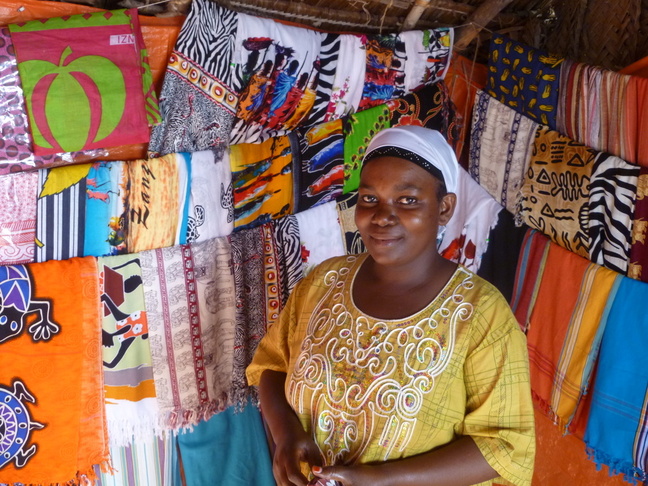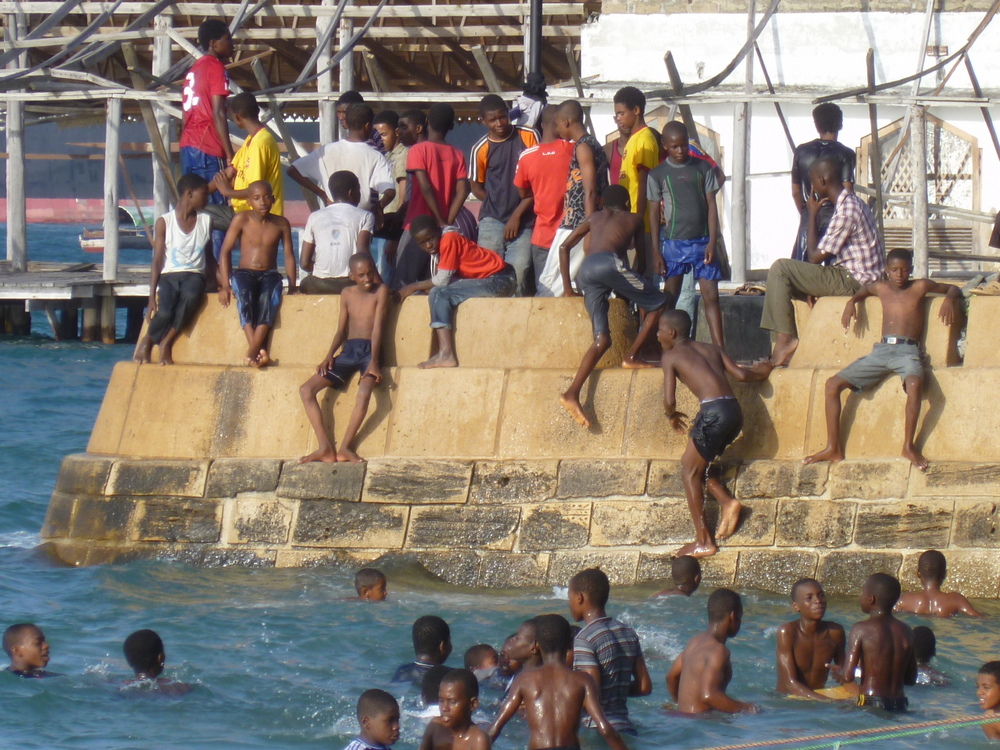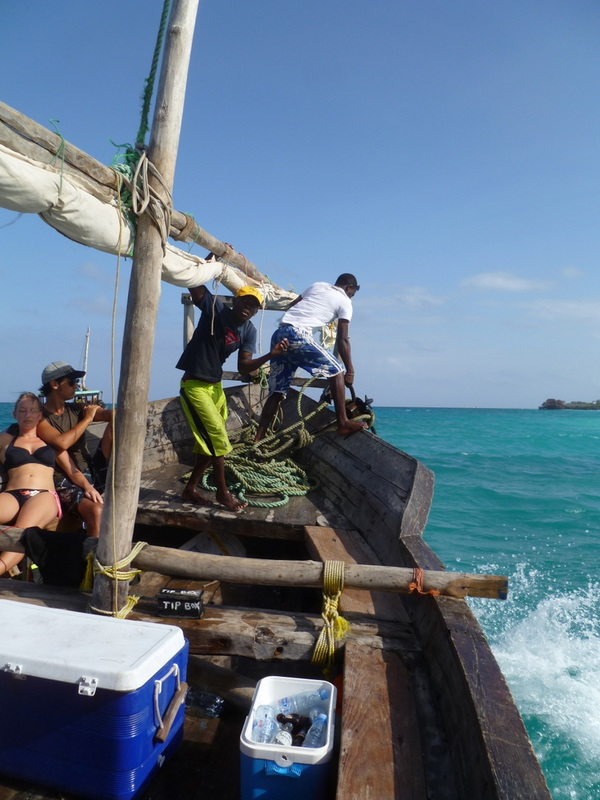|
Peacock blue. That’s the color of the water surrounding the Tanzanian island of Zanzibar when the sun is directly above. Now, in the late afternoon, it’s more of a rich royal blue, and the graceful arc of a dhow’s sail is crossing in front of me. A palm tree’s lazy arms wave.
A Zanzibari woman named Hadigya, with a warm, patient smile, has given me my third back massage in five days here at Kendwa, a beach town on the island’s northwestern tip. She uses lemongrass-scented oil, and this time, cool water to soothe my sunburn. During the massage I thought, it’s the Zanzibar outside of the border of the postcard that I love. It’s the healing hands of Hadigya. And the conversation with the waiter Haz this morning about his life on the island—the way his eyes teared up when he told me how beautiful his three-year-old daughter is and how she can’t get enough chocolate. And the cats everywhere. They seem to belong to the buildings rather than the people, lying long and lanky in a slice of shade created by a step or a wall. Every evening at sunset in Stonetown, the island’s largest city, a group of teenage boys takes turns racing full speed at the cement ramparts that separate the land from the sea. They jump over the barrier and dive, flip, bellyflop, cannonball, or twirl into the water. As they launch into the air, their arms and legs flail wildly. There is usually no attempt at grace or form. It’s the happiest display of diving I’ve ever seen. They don’t ask for money from the crowd that gathers. They’re just plain having fun, playing with the rim of this island that’s their home. Stonetown’s alleyways and streets are slender and serpentine, and it’s a pleasure to see where they lead. It’s never anywhere that spectacular, but there are small surprises: A group of young, veiled Muslim girls playing on a stone wall, laughing, being tomboys. The frame of a wooden door so carved with flowers and Arabic script that no smooth surface is left. An old man sitting the shade who greets me with “Karibuni,” (welcome). We came to Zanzibar just in time for the Sauti za Busara music festival, a five-day celebration of African sounds that brings artists from all over the continent. A couple nights ago we saw a 90-something-year-old woman named Bi Kidude sing traditional taarab and unyago songs. Taarab is a Swahili genre that’s extremely popular on Zanzibar and often performed by a full orchestra at weddings. Unyago is associated with female coming-of-age ceremonies. The music’s rhythms are said to teach women how to please their husbands (in bed). Bi Kidude, who is so old she doesn’t even remember what date she was born, sang with passion and zest. The entire crowd gravitated toward the stage to take pictures of this still-burning star. In a way, Bi Kidude is a perfect representative of Zanzibar, an island that’s so ancient and rich with stories that it’s become a kind of legend. But it’s not a two-dimensional postcard. It’s still very alive. It’s a bit dirty. It’s hot. Teenagers go wild at night. Old women sing sultry songs. And I never want to leave.
6 Comments
One of the highlights of our cruise around the island nation of Cape Verde was a visit to a guitar-maker's shop in Mindelo, on Sao Vicente. Here, four brothers, the Baptistas, stood in the half-light of a small shed and played the sweetest melodies for us (video above). They were all brothers of Bau, a Cape Verdean musician who plays internationally, and sons of a famous guitar-maker.
The Baptista brothers have carried on their father's trade. The owner of the shop, Luis, explained how they soak pine wood in water to form the instruments' graceful curves. Then, at the nudging of our guide, whom you can see dancing near the end of the video, Luis played us a song. The music seemed to capture the easy-breezy languor of the island life. Men from around the neighborhood leaned in through the windowsill of the workshop. Another man draped his arm over the door. A small dog wandered into the room and curled up for a nap. The song the men sang was called "Soldade," by famous Cape Verdean singer Cesária Évora. She's also called "the barefoot diva" for her habit of singing without shoes on--and for her lack of pretension even as she achieved world renown. Évora is particularly famous for her mornas, songs that give voice to an emotion called saudade. This word has no direct translation in English, but as I understand it, saudade is a feeling of deep longing for someone or something that is forever gone. It's the ache that pools in your chest when you truly miss someone. Throughout the Cape Verde islands, I saw cafés, bars, and even convenience stores named "Sodade" or "Saudade." Our guides also talked about this emotion with passion, explaining that it is an essential part of life in Cape Verde, where so many people have left to search for a better existence in the U.S. or in Europe. I've thought about what is means to be able to collectively share this yearning feeling of sadness or melancholy--how it makes it less lonely and less dark. Through music, this heartache becomes a kind of bittersweet celebration. |
Archives
July 2012
Categories
All
|




 RSS Feed
RSS Feed